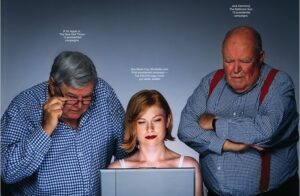To both protect oneself and to target one’s opponent, David All has proposed “five essential tips for the YouTube campaign trail.” His suggestions are groundbreaking and thoughtful, but I’d like to add one more, albeit unrelated to YouTube: Develop software to download your opponent’s Web site once a day. You need not download the whole site, but, like a good backup program, only the pages that have changed since the last download.
Savvy readers will point out that Google already caches pages for free. In fact, Google’s cache was the source of this gotcha blog post by the Politico’s Ben Smith. This method is fine if you know that a change occurred within the past week or so, but if you don’t, your only other option is the Wayback Machine, which archives entire sites, but only twice a year.
Hence the aforementioned software. As Ryan Lizza of the New Republic reported yesterday, a rival campaign of Bill Richardson’s dug back a month and a half to document a change in the governor’s seven-part plan for Iraq. In short, as of May 12, Richardson explicitly supported the Feingold-Reid amendment, which would cut off funds for the war next March. Today, the same page has been scrubbed of such support.
After-the-fact editing, whether of a Web page, a profile of oneself or even the congressional record, is all-too-common. What’s new is the increasingly comprehensive ability to play gotcha! This is not a necessarily healthy development—such microscopic scrutiny promotes perfunctory rather than spontaneous campaigning—but it’s a fait accompli.
Addendum (6/29/2007): Via e-mail, Josh Levy, of techPresident (tP), expresses reservations about my proposal (which I submitted to tP). Josh likens this to “a version of politics that we’re hoping the Web—by giving the voters more control of the political process—will help undo.” He adds, “Without sacrificing the open Web, there appears little we can do to stop it.”
Not wanting to promote “gotcha-ism” is perfectly understandable—and I wholeheartedly share Josh’s hope for less politics-as-usual—but I think the idea that the Internet will “undo” opposition research is like asking rain not to fall.
In his latest column, Tom Friedman observes that the Web’s empowerment of every individual to self-publish puts us all ill at ease, constantly on a possible stage. Unfortunately, the “good” empowerment (say, making government spending more transparent, a la last year’s Coburn-Obama bill) cannot be separated from the “bad.”
Furthermore, while my proposal is admittedly akin to bottom-feeding, I don’t think it constitutes gaming the system. In fact, it behooves candidates today to take advantage of every opportunity the Internet provides—whether it’s bringing together one’s supporters (a la Ron Paul), introducing politics to the apolitical (Obama), or compiling oppo (Richardson’s rival).




